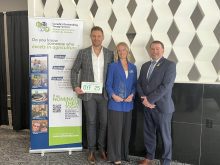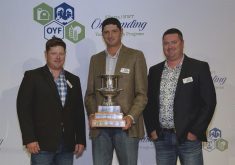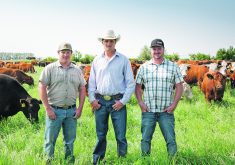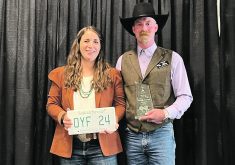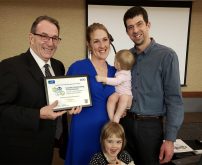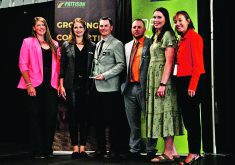The two farms that won the competition were announced as part of a four-day event that was held in Saskatoon this year
After rigorous examination and being judged for their farming activities and roles in Canadian agriculture, six people will forever be part of an elite group of the nation’s farmers, the National Outstanding Young Farmers.
On Nov. 25, Canada crowned its 2022 Outstanding Young Farmers in Saskatoon.
Cody Straza and Allison Squires from Wood Mountain, Sask., and Guillaume Lessard and brother Étienne, along with their partners Johannie Couture and Marie Pier Boutin of St-Honoré de Shenley, Que., will hold the titles for 2022.
“It is very exciting winning this award. My initial reaction is we honestly didn’t think we were going to win…. seven really strong presentations from all across Canada. I think the challenge this year is that we were also very diverse and different…. Everything from potatoes in P.E.I., fruit growers in B.C., a farm to table market in Ontario, and then us and then ranching and dairy as well. It’s just really exciting time to be able to tap into all these different resources across the country,” said Squires.
Read Also
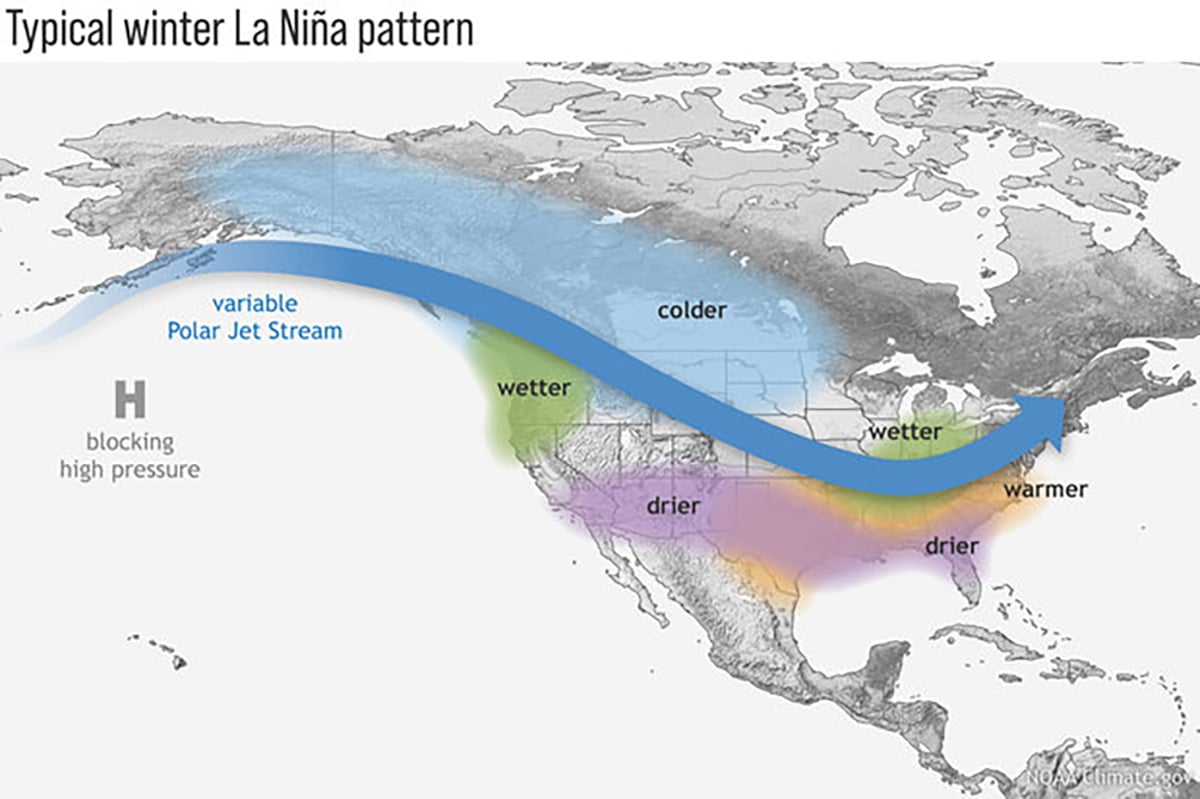
Weather factors to watch this winter
There are currently three main factors that could be a driving force behind the type of weather we may see this winter. The first is La Nina, which is currently in a weak stage.
Guillaume Lessard said he was moved by the award.
“It feels very good. We really appreciate that the judges chose us for this honour. It means a lot to us because we’ve been through a lot of hard times the past few years. We had to show a lot of reliance and to have this kind of honour, we’re very happy about it.”
For 42 years, the annual event has brought together farmers ages 18 to 39 who have been judged to be great producers and ones who have fostered improved urban and rural relations.
Judges choose two farms to be OYF winners after four days of presentations, forums and tours as fellow participants, former winners and sponsors hear about the achievements of the finalists. The criteria cover many areas including maximizing soil use, water and energy resources, production histories, operational and financial management and roles in their communities, regions and the nation.
The two farms that won for 2022 were picked from this year’s seven regional winners, including: Gurpreet Lidder from Lidder Produce at Keremeos, B.C.; Ben Campbell of the Tullichewan Ranch at Black Diamond, Alta.; Cody Straza and Allison Squires of Upland Organics at Wood Mountain, Sask.; Richard and Kristy-Layne Carr of Rich Lane Farms at Marchand, Man.; David and Jennifer VanDeVelde of Wholesome Pickins Market and Bakery in Delhi, Ont.; Guillaume and Etienne Lessard and their partners Johannie Couture and Marie Pier Boutin of Ferme Holdream Inc. at St Honore de Shenley, Que., and Morgan and Karissa Smallman of J&J Farms of Alberton, P.E.I.
“I think we’ve got a whole bunch more lifelong-friends. Everybody’s so friendly, open, collaborative. It was just a great experience. We can’t wait to get together next time,” said Straza.
Lessard looked forward to what the OYF might bring in the future.
“Maybe this award will help us with the things we want to say. Maybe people will take us more seriously with this honour, so maybe this will help us have a bigger voice,” he said.
Guillaume went to school in Manitoba for 14 months, where he worked part-time at a farm in Sandy Lake and learned to speak English.
“I was really impressed at the time when we went West at how big the machinery is and how big and flat the land is. We’re not used to it in our area,” he said.
On the farm in Quebec the brothers split the chores and responsibilities of the operation between them.
“I’ll do more the paper thing (accounting and bookwork) and my brother takes care of the milking and hog herds. And for the work in the fields and the sugar camp we do it both,” he said.
Straza described their organic operation as regenerative at its core.
“We started doing regenerative agriculture practices in 2016, and then in 2018 we expanded into beef cattle. With the regenerative practices, we wanted to reduce our tillage and being an organic farm, we can’t just go buy synthetic fertility. We use cover crops as our soil building year and instead of using tillage to terminate that and turn it into the soil, we’re using cows to graze those cover crops and terminate them and cycle those nutrients all at once,” he said.



